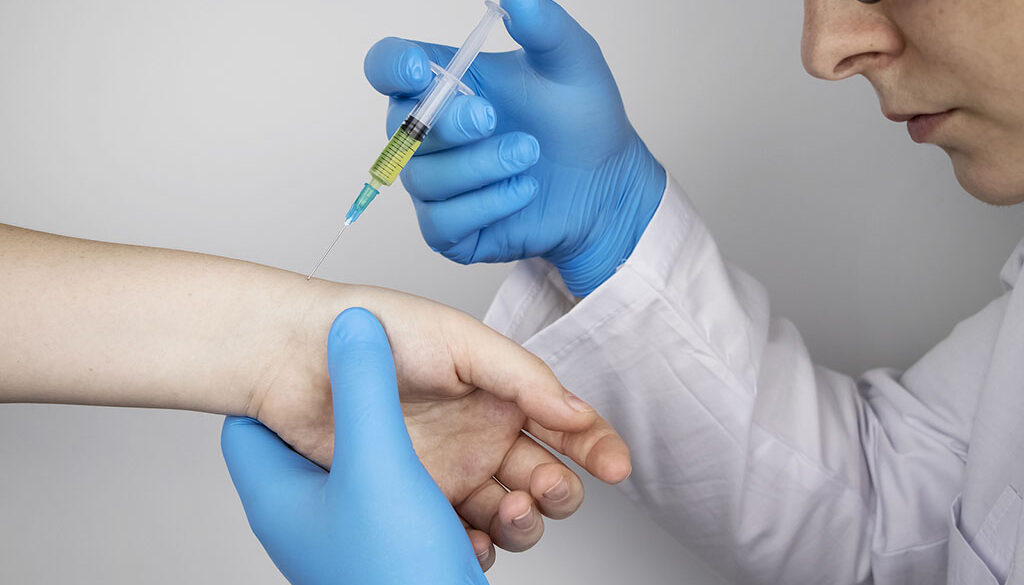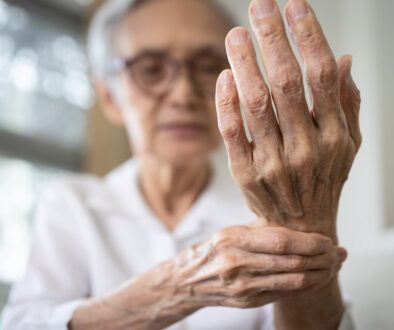3 Ways We Treat All Stages of Rheumatoid Arthritis
If you’ve been diagnosed with rheumatoid arthritis (RA), we know your mind is full of questions centered around the most effective treatment. There are 4 stages of rheumatoid arthritis and without timely intervention, the disease will continue to get progressively worse. RA begins in stage 1 with inflamed joint tissue and advances to stage 4 where your joints deteriorate to the point that you lose mobility.
At Raleigh Adult Medicine, our board-certified rheumatologist in Raleigh is ready to provide the care you need coupled with our holistic approach to medicine. If you’ve been diagnosed with RA or you believe you’re showing signs of RA, we encourage you to schedule an appointment.
3 Ways We Treat All Stages of Rheumatoid Arthritis
There is no cure for RA, therefore, we’ll work with you to manage the symptoms and “flare-ups.”
Of course, treatment depends on the stage of your arthritis, your medical history and your overall health. As internal medicine doctors in Raleigh, we also consider if you have any other chronic health conditions like Type 2 diabetes or high cholesterol.
The Following are three of the ways we treat the stages of rheumatoid arthritis.
1. We Guide You Through Lifestyle Changes
Lifestyle changes won’t cure your RA, but they can help. We’ll work with you to craft a plan that involves:
- Diet: Add good fats and eliminate or minimize bad fats.
- Losing weight if you need to: This can decrease the stress on your joints.
- Appropriate exercises: This helps you avoid the stiffness that can come from inactivity–just be sure to only start an exercise routine under the guidance of our rheumatologist who serves the Triangle area.
Diet and lifestyle changes alone will not solve the issue, rather, it should be a part of comprehensive care supervised by our leading, board-certified rheumatologist in Raleigh who can help you manage all stages of rheumatoid arthritis.
2. We Prescribe Effective Medications
There is a wide variety of medications that can help you manage RA, and they can include:
- Biologics
- Corticosteroids
- Non-steroidal anti-inflammatory drugs
- COX-2 inhibitors
Sounds confusing? We know that it can. That’s why we’ll take time to explain the benefits of each type of medication, its dosage and long-term effects.
3. We May Need to Refer You to a Surgeon
If your joints are severely damaged, knee or hip replacements can help control pain. If more conservative methods of treatment aren’t successful, we can refer you to an orthopedic surgeon.
What Stage of Rheumatoid Arthritis Do I Have?
We’ll only be able to make an accurate diagnosis of your RA stage after a complete exam that measures both your symptoms and your medical history.
However, in general, the following are some of the stages of rheumatoid arthritis and how each affects your body.
Stage 1: Initial Tissue Inflammation
During this stage, you’ll notice some pain and stiffness, but bone damage typically won’t be immediately discovered, even on an X-ray.
Stage 2: Cartilage Damage
At this point, the inflammation is worse and you’ll notice stiffness accompanied by a limited range of motion.
Stage 3: Bone Damage
During this stage, severe levels of inflammation damage bone, causing additional pain, stiffness and further limited motion.
Stage 4: Continued Joint Damage
Even though the inflammation stops in stage 4, the damage of RA continues as your joints get even worse. The pain is severe and swelling/stiffness mean an even greater loss of mobility.
How Fast Does Rheumatoid Arthritis Progress?
There’s no one set timeline, and how fast the stages of rheumatoid arthritis progress depend upon a number of individualized factors. In some patients, we’ve seen their joint problems develop over several years, but in others, these stages may progress much faster.
What Are the Signs that Rheumatoid Arthritis is Getting Worse?
Not sure if your RA is getting worse? Ask yourself the following questions:
- Is my joint pain and stiffness gradually getting worse?
- Am I more tired than usual?
- Is my range of motion more limited?
- Am I experiencing more “flare-ups”
- Is this having a greater impact on my daily life?
If you answered “yes” to any of these, you need to schedule an appointment with us because these are signs your RA is either getting worse or is not as well-managed as it could be.
How Do You Know If You Have RA?
Typically, the first signs are pain in your smaller joints–usually your fingers, but you may also experience tenderness in your toes. It’s also not unusual to have pain in your knees or shoulders.
At first, these early symptoms may seem like nothing more than an inconvenience, but early and timely intervention is crucial to successfully manage all stages of rheumatoid arthritis.
RA can also have similar symptoms to other diseases such as arthritis so you can only get an accurate diagnosis from one of our physicians in Raleigh.
Get The Answers You Need From Our Leading Board-Certified Rheumatologist in Raleigh
As we mentioned earlier, RA shares many of the same signs as other illnesses, so only a trained specialist can determine the difference.
Dr. Chaudhary not only treats rheumatoid arthritis, but he also treats other autoimmune conditions such as lupus, gout, joint pain and osteoarthritis. He sees patients for non-surgical evaluations and provides solutions that will help you manage this often-debilitating disease.
In addition to helping our patients manage RA, we are internal medicine physicians in Raleigh who are taking new patients! Simply request an appointment to get started.
The content within this article and others on this website is only for educational purposes and should not be considered as medical advice. For any questions or concerns, please consult with your healthcare provider.



